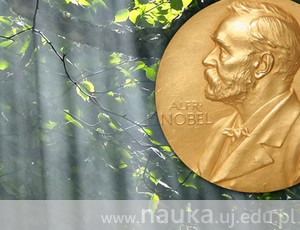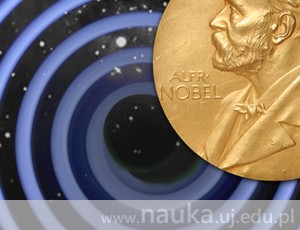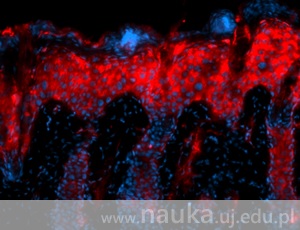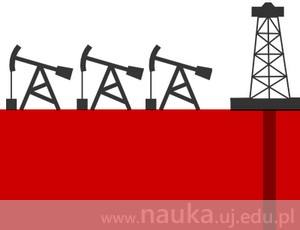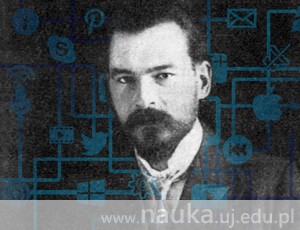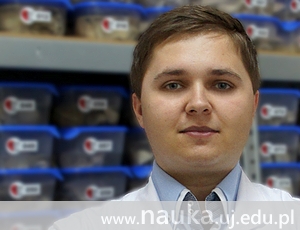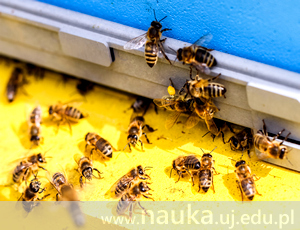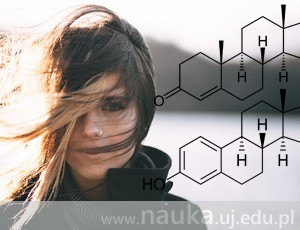 Web Content Display
Web Content Display
JU Research
 Web Content Display
Web Content Display
 Web Content Display
Web Content Display
JU science communication
Nobel Prize 2017. Physiology or Medicine: what affects the rhythm of day and night?
09.10.2017
Cyclical changes, such as the day and night rhythm are an inherent part of nature. In 2017 the Nobel Prize in physiology and medicine was awarded to Jeffry C. Hall, Michael Rosbash and Michael W. Young.
Read More o Nobel Prize 2017. Physiology or Medicine: what affects the rhythm of day and night?
Nobel Prize 2017. Physics: gravitational waves caught by scientists
09.10.2017
Einstein was not wrong. His theoretical analyses have been proven by experiments conducted within the framework of the LIGO/VIRGO project - gravitational wave detection. This spectacular achievement has brought its fathers - Rainer Weiss, Barry C. Barish and Kip S. Thorne - this year’s Nobel Prize. In this article, we’ll try to explain what it’s all about.
Read More o Nobel Prize 2017. Physics: gravitational waves caught by scientists
SLPI protein – the key to solving the mystery of psoriasis?
06.10.2017
Psoriasis is one of the most common skin diseases. Statistically speaking, when we’re on a city bus, we’re travelling together with three co-passengers affected with this ailment. Researchers from the Jagiellonian University Department of Immunology have taken up the challenge of solving this mystery.
Read More o SLPI protein – the key to solving the mystery of psoriasis?
Employee (un)friendly companies?
26.09.2017
Most companies compete in developing most effective strategies of working their employees to the bone for the sake of improving work efficiency. But is this really the only way?
Read More o Employee (un)friendly companies?
Why aren’t there any vast oil and gas deposits in Poland?
20.09.2017
What phenomena lead to formation of fuel deposits and why can't the ones in Poland compare to those in the Middle East? We asked Dr hab. Patrycja Wójcik-Tabol from the Institute of Geological Sciences to explain this issue to us.
Read More o Why aren’t there any vast oil and gas deposits in Poland?
Marian Smoluchowski and the Internet of Things
07.09.2017
Mountain climber, painter, and most importantly, a genius physicist. Simultaneously with Albert Einstein, he explained the phenomenon called the Brownian motion, used in economics and new technologies. This September, one hundred years after his death, Kraków institutions are celebrating the main events related to Marian Smoluchowski Year.
Read More o Marian Smoluchowski and the Internet of Things
Open spaces and classes under palm trees. How could our schools look like?
06.09.2017
Encouraging creativity and cooperation, focus on solving practical tasks and teaching children how to think by themselves - these ideas are frequently referred to in discussions about a perfect school. Let’s take a closer look at several educational institutions that stand out from the crowd and try to put these principles into practice.
Read More o Open spaces and classes under palm trees. How could our schools look like?
Mapping the heart
29.08.2017
In April 2017, Mateusz Hołda successfully defended his PhD thesis, even though at the time he was still an MSc student at the JU MC Faculty of Medicine. It’s the first such case in Poland.
Read More o Mapping the heart
A new menu for bees
25.08.2017
Feeding on improper plant species might be one of the causes of mass bee die-offs. Biologists from the Jagiellonian University and the University of Life Sciences in Lublin have investigated how the nutritional values of different kinds of plants affect the development of honeybees.
Read More o A new menu for bees
Fertility, hormones, and health: no easy answers
23.08.2017
The fertility of a woman is dependent on two hormones: oestrogen and progesterone. They play a pivotal role during puberty, insemination, and the development of foetus. However, they also have a ‘darker side’: they’re often responsible for breast, ovarian, and uterine cancer. Did evolution play a cruel trick on us by making something so important for creating life dangerous, and sometimes even deadly?
Read More o Fertility, hormones, and health: no easy answers

